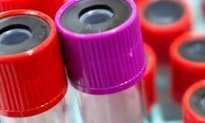Half of labs to be on NPEx
- 18 February 2014

Half of all laboratories in England should be on the National Pathology Exchange by the end of the year, says an NHS England report.
‘National Pathology Programme Digital First: Clinical Transformation through Pathology Innovation’, highlights the use of digital pathology systems and innovation across the country.
The National Pathology Exchange, or NPEx, is a national data exchange service that provides a direct interface between laboratory information management systems and a national hub to create a streamlined process.
The report says that NPEx, which was first installed across nine laboratoriess in the Greater Manchester Pathology Network in 2009, should be rolled out nationally to reduce paper referrals of samples.
“Roll-out so far has tended to be regional – it makes sense that with most lab-to-lab work currently mainly within regions, the greatest benefits will be where those working together get linked up,” says the report.
“The target is to get 50% of labs in England on NPEx by 2014, and this is expected to provide a tipping point that will make it more and more beneficial for all labs to get connected.”
The system also allows progress and the physical location of tests and results to be tracked and lets pathology managers see what tests other labs offer, how much they charge and their turnaround times.
The also report says that creating a “digital ecosystem” will “unlock the potential of data” and highlights several innovative projects across the NHS.
According to the report, one of the most important projects is the NHS National Laboratory Medicines Catalogue being created by the Health and Social Care Information Centre.
It is the UK’s first comprehensive catalogue of test requests and provides a clinical content information standard using SNOMED-CT coding terminology to enable delivery of consistent and comparable information on pathology services.
“NLMC will provide the standardisation required to make pathology data open to all those who want to use it – not just clinicians and patients, but others including screening programmes, disease registries and service commissioners,” says the report.
“As experienced in industry and other public sector organisations, opening up access to data through standardisation should also lead to innovation and novel applications – data can be combined and used in new ways to create new information-based services that respond to user needs.”
Other examples of innovation across the country include the Isle of Wight NHS Trust using text messages to report results; Leicestershire Pathology Service implementing an integrated lab system across its lab sites; and Sandwell and West Birmingham using business intelligence tools such as geographical mapping visual displays and dashboards to improve the pathology services.
Pathology is involved in 70% of all diagnoses made in the NHS and nearly 800m tests are performed annually in England and Wales.




